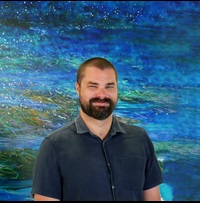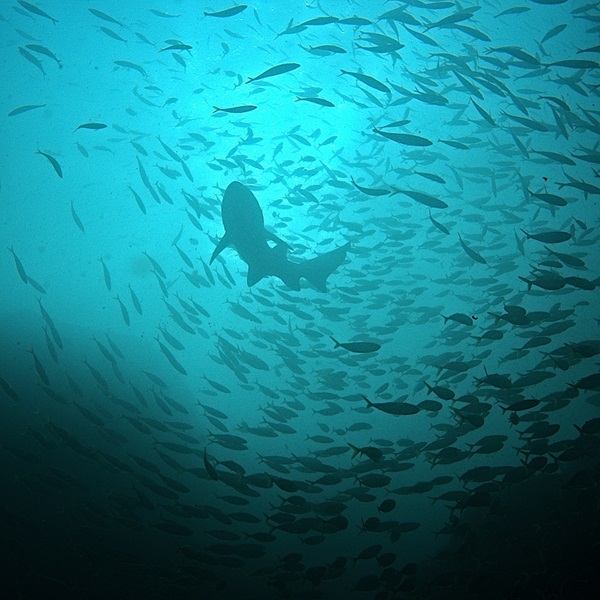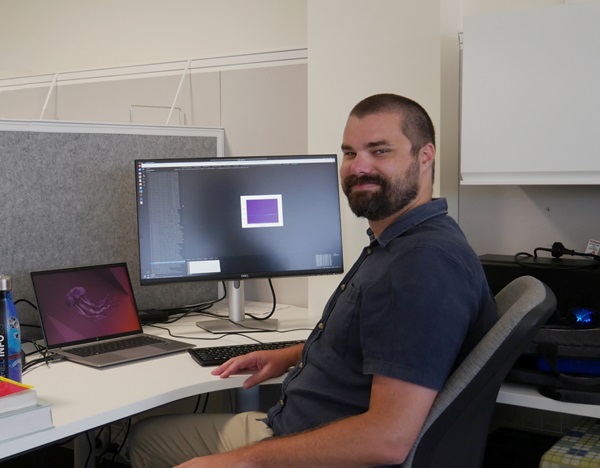
Developing future leaders in Tropical Marine Science
SPOTLIGHT AIMS@UWA Research NEWS

James Kemp
Postdoctoral Researcher
Systems engineer and data scientist James Kemp is exploring machine learning using acoustic and video data from sites around Australia.
MACHINE LEARNING FOR PASSIVE ACOUSTIC MONITORING
James Kemp’s current project is to apply data science to audio and video data from underwater, but prior to this position his work was quite different. After studying Biomedical Science and Engineering, and working as an engineer at ResMed, James developed programming skills and a passion for automation.
Looking to improve his skills in the automation field, James completed an Industry PhD in Computer Science and Engineering. He partnered with CSIRO and the Australian Government Department of Health and Aged Care to create approaches for detecting unusual and potentially fraudulent claims from Medicare providers. Systems he developed as part of the project are now in use at the Department of Health.

A Grey Nurse shark swimming among schooling Yakka, captured during one of James' dives in Terrigal, NSW
A keen musician and avid scuba diver prior to starting his PhD, the combination of his vocation and hobbies has led James to many interesting places such as the island of Vanuatu. While visiting on a diving holiday he was able to assist a local hospital with his medical engineering expertise. This varied background has led James to his current role; machine learning for Passive Acoustic Monitoring (PAM).
PAM utilises hydrophones for recording underwater environments, which can be analysed for ecological information such as species detection and identification, coral cover estimation, and environmental changes. Recent advances in hydrophone technology have made it a scalable tool for marine ecology worldwide. AIMS made headlines last year for co-ordinating the inaugural World Ocean PAM day (WOPAM), the first global effort to collect underwater sound to create a snapshot of the marine soundscape worldwide (More information on WOPAM here).
Currently, James is working with recordings from diverse areas such as the Swan River, the Great Barrier Reef, and the Amazon River.

James hard at work, reviewing his latest data set
Early stages of working in this field involves exploring potential research areas. Currently, James is trialling ways to improve annotation workflows, such as acoustic spectral fingerprinting (think voice recognition for marine life). He is also investigating anomaly detection and concept drift methods for long-term monitoring, which could be used to inform prevention or restoration strategies in response to environmental changes such as the spread of invasive species, effects of climate change, or natural disasters, by allowing researchers to detect and understand the impact on species and habitat composition.

